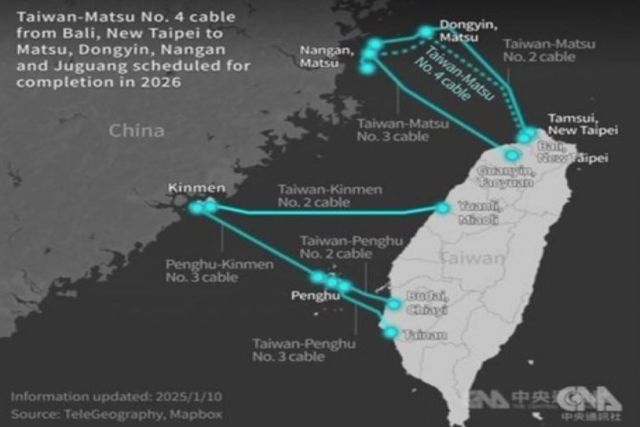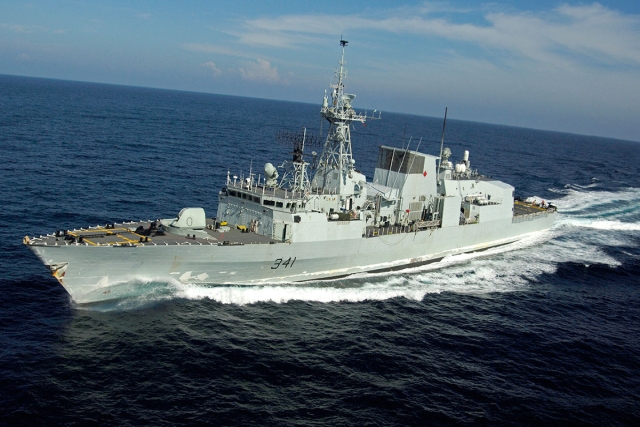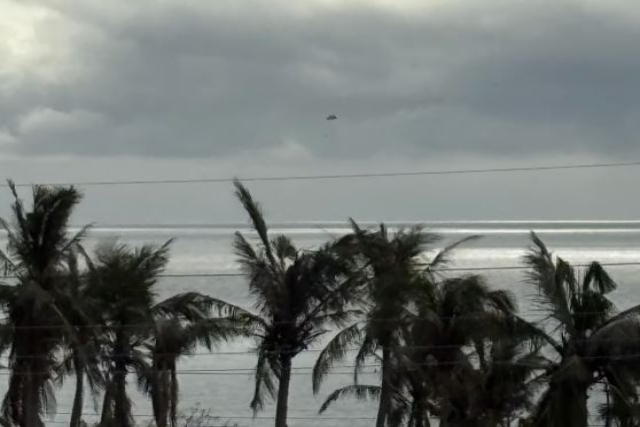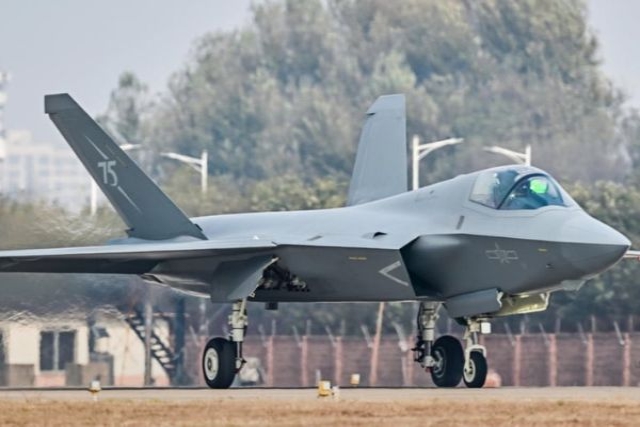Taiwan Detains China-linked Cargo Ship After Undersea Cable Cut
Incident fuels fears of escalating 'grey zone' tactics in the Taiwan Strait

Taiwanese authorities have detained a Chinese-crewed cargo ship, the Hong Tai 58, on suspicion of severing an undersea communications cable connecting Taiwan to the Penghu Islands.
This incident underscores the growing apprehension over "grey zone" tactics employed by China, aimed at undermining Taiwan's security without direct military confrontation.
The Hong Tai 58, a dilapidated vessel registered under the flag of Togo but reportedly financed by Chinese interests, was anchored perilously close to critical undersea infrastructure off Taiwan's southwestern coast. Despite multiple warnings from the Taiwanese Coast Guard, the ship lingered in the sensitive area, raising suspicions. At approximately 3:24 a.m. on Tuesday, shortly after the vessel was ordered to vacate the vicinity, a vital communication cable was found severed. The Coast Guard promptly detained the ship and its crew of eight Chinese nationals for further investigation.
This event is not isolated. Taiwan has experienced a surge in undersea cable disruptions, with five incidents reported this year alone, compared to three each in 2024 and 2023. Notably, in 2023, two cables connecting Taiwan to the Matsu Islands were cut, leading to significant communication outages. While natural wear and tear or accidental damage from fishing activities are common culprits, the frequency and context of these incidents have led to heightened concerns about deliberate sabotage.
The ramifications of such undersea cable disruptions extend beyond regional tensions. Globally, undersea cables are the backbone of internet connectivity, facilitating over 98% of international data transmission and more than $10 trillion in daily financial transactions. The vulnerability of this infrastructure has been highlighted by similar incidents in the Baltic Sea, where cables have been mysteriously severed, prompting investigations into potential Russian involvement. These events have ignited discussions about the security of global communication networks and the potential for geopolitical adversaries to exploit these vulnerabilities.
In response to these threats, Taiwan has intensified its monitoring of maritime activities and undersea infrastructure. The government is also exploring alternative communication technologies, such as low-earth orbit satellites and microwave internet facilities, to bolster resilience against potential sabotage. Internationally, there is a growing consensus on the need for collaborative efforts to safeguard undersea cables, with discussions focusing on enhancing legal frameworks and improving surveillance of maritime activities.













